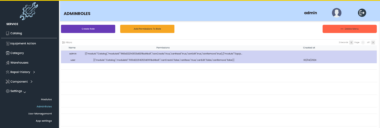MCP Server Overview
In the ever-evolving landscape of digital information retrieval, the MCP Server emerges as a beacon of innovation, bridging the gap between AI models and vast data sources. This powerful tool is built on the Model Context Protocol (MCP), a standardized approach that allows applications to provide context to Language Learning Models (LLMs). The MCP Server is not just another search service; it’s a comprehensive solution that integrates multiple search engines, enhancing the capabilities of tools like Claude Desktop and Cursor.
Key Features
Multi-Search Engine Support
The MCP Server supports three distinct search engines, each catering to different needs:
- Brave Search: Ideal for global searches, offering high-quality results with optional location-based queries.
- Metaso Search: A domestic search engine providing network and academic searches, perfect for concise or in-depth research.
- Bocha Search: Known for its speed and quality, this search engine excels in detailed summaries and image searches.
Seamless Integration
Designed with modularity in mind, the MCP Server allows each search engine to function as an independent module. This flexibility means that users can integrate these modules into other systems or use them individually, depending on their requirements.
High Performance and Scalability
Developed using Python, the MCP Server supports asynchronous processing and handles high-concurrency requests efficiently. This ensures that users experience minimal latency, even during peak usage times.
Use Cases
Enhanced Content Retrieval
For professionals using Claude Desktop or Cursor, the MCP Server significantly expands content retrieval capabilities. Whether you’re conducting market research, academic studies, or general information gathering, the MCP Server ensures you have access to the most relevant data.
Custom AI Agent Development with UBOS
UBOS, a full-stack AI Agent Development Platform, leverages the MCP Server to connect AI agents with enterprise data. This integration allows businesses to build custom AI agents tailored to their specific needs, enhancing productivity and decision-making processes.
Academic and Research Applications
The Metaso search engine’s academic search capabilities make the MCP Server an invaluable tool for researchers and students. With options for concise or detailed search modes, users can tailor their queries to fit their research needs.
Technical Specifications
System Requirements
- Python 3.10+
- uv 0.24.0+
- node.js v20.15.0
- Cursor version 0.45.10 or higher
Installation and Configuration
- Environment Setup: Ensure all system requirements are met.
- Download and Configure: Clone the repository and configure the desired search engine in the
server.pyfile. - API Key Configuration: Depending on the chosen search engine, configure API keys or authentication details as specified.
- Integration with AI Tools: Configure the MCP Server in tools like Claude Desktop or Cursor to enable seamless data retrieval.
Conclusion
The MCP Server is a versatile, high-performance tool that enhances the way we interact with digital information. Its integration with multiple search engines and AI tools like UBOS makes it an essential asset for businesses and individuals alike. Whether you’re looking to streamline your research processes or develop custom AI solutions, the MCP Server provides the flexibility and power you need to succeed.
Search Service
Project Details
- fengin/search-server
- MIT License
- Last Updated: 4/17/2025
Recomended MCP Servers


FreeCAD MCP(Model Context Protocol) server
An implementation of Giphy integration with Model Context Protocol
Model Context Protocol server for OpenStreetMap data
BigGo MCP Server utilizes APIs from BigGo, a professional price comparison website.
Model Context Protocol server for AI assistants to create meeting bots, search transcripts, and manage meeting recordings.

WhatsApp MCP server
ClickUp MCP Server - Integrate ClickUp task management with AI through Model Context Protocol
An MCP generator for OpenAPIs
Ollama MCP server for bybit
MCP server for Shopify api, usable on mcp clients such as Anthropic's Claude and Cursor IDE
MCP server for interacting with RabbitMQ
 From vibe coding to vibe deployment. UBOS MCP turns ideas into infra with one message.
From vibe coding to vibe deployment. UBOS MCP turns ideas into infra with one message.









